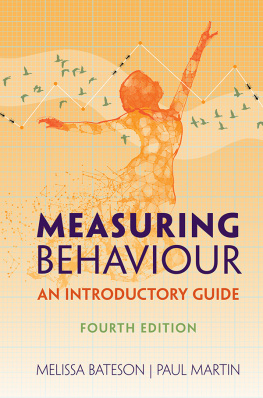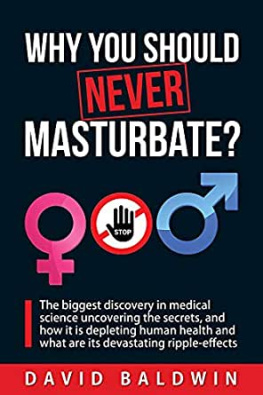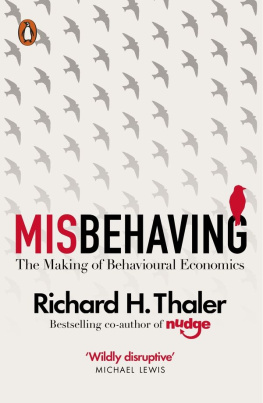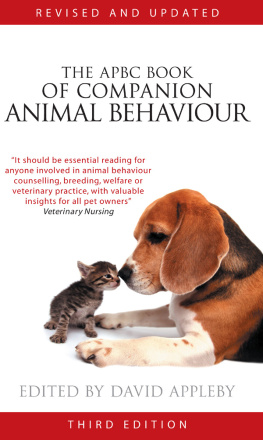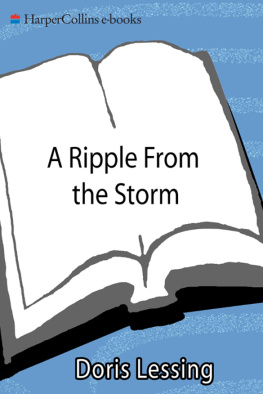Ripple
The big effects of small behaviour changes in business
Jez Groom and April Vellacott
Contents
About the authors
Jez Groom
Jez has been practising behavioural science for over ten years working with some of the biggest organisations around the world, and was the co-founder of Ogilvy Change and Engine Decisions. In 2016 he founded Cowry Consulting, the leading behavioural economics consultancy, and is currently a visiting fellow of Behavioural Science at City University.
April Vellacott
April has been studying the field of human behaviour for nearly a decade, and holds degrees in Psychology and Behaviour Change. She is a behavioural consultant at Cowry Consulting, where she helps global clients to apply behavioural science in their organisations.
Glossary
affect Our emotions, known in behavioural science as affective states , can have profound effects on our behaviour.
ambiguity aversion We have a preference for risks that are associated with known probabilities over those with unknown probabilities, and we tend to avoid decisions where the choices and commitments are ambiguous.
anchoring Once weve been exposed to one piece of information (the anchor), it influences our subsequent judgments.
availability heuristic Our probability judgments are affected by the ease with which we can recall examples from memory.
authority bias Were influenced by cues of authority and were more likely to trust the guidance of those who are authorities in their field, such as doctors or lawyers.
broken windows theory Small examples of lawlessness encourage more law-breaking behaviour.
choice architecture Altering and influencing peoples decision-making context.
chunking The process of grouping many pieces of information into smaller chunks to make it easier to process.
cognitive dissonance The uncomfortable mental feeling of holding two conflicting beliefs at the same time.
cognitive miser Just as a miser is stingy with money, our minds are inherently lazy and prefer to avoid expending cognitive energy.
cognitive overload When our working memory is overloaded with too much information.
commitment bias Once weve made a commitment to do something, even if its small, were then more likely to continue investing in it.
conformity In social groups, we have a tendency to conform towards the behaviour of the majority; see also social proof .
confounding variables These are the factors which have hidden effects on the outcome of an experiment.
consistency bias We like to see our current behaviour as consistent with our previous behaviour and we are motivated to behave in ways which maintain this consistency.
default bias We prefer to stick with the default option and go with the flow, as this requires less cognitive effort; see also status quo bias .
ecological valence theory Our colour preferences are influenced by our previous emotional associations.
effort heuristic We associate the amount of effort taken to make something with its quality.
ego/superiority bias We like to behave in ways that make us feel good about ourselves.
embodied cognition Our bodies and their sensory inputs influence our mental state.
empathy gap We underestimate the influence of emotions and urges on our future decisions and on other peoples decisions.
endowment We value the things we own more than things we dont.
facial mimicry When we see another person smile, we simulate the smile in the form of a micro-expression.
frame dependence Our choices are affected by context and their relation to available comparisons.
Hawthorne effect Research participants behave differently if they know theyre being watched.
hot/cold affective states We underestimate the extent to which our behaviour and decisions depend on our mood; see also empathy gap .
incentives Things which are used to motivate behaviour; these can be financial, but are more broadly defined as the benefits or costs of a given behaviour.
joint attention From infancy, we have the inclination to follow peoples eye gaze.
loss aversion We feel the impact of losses twice as much as equivalent gains.
mere exposure effect The more familiar we are with things, the more we like them.
messenger effect When evaluating a piece of information, we are significantly influenced by its messenger.
optimism bias We tend to think were more likely to experience positive events in the future and underestimate the chance of negative events.
p-hacking The practice of manipulating a data set in order to acquire a specific p-value.
p-value The level of significance of your statistical analysis. A small p-value indicates that there is a low probability you got the results of your experiment by chance, so a small p-value means you can trust your results.
picture superiority Our brains process images in just 13 milliseconds compared to the 300 milliseconds it takes to read a word, and up to 400ms to understand what that word means. Therefore, images are an efficient way to communicate information.
power of because When people provide us with a reason for a request, we tend to automatically comply, even when the reason is specious.
power of free Zero is a special number when it comes to price and we are irrationally drawn towards things which are free.
pratfall effect People come across as more likeable once theyve made a small mistake.
present bias We are impatient and biased towards decisions that give us instant gratification, rather than ones with delayed gratification.
primacy effect We find it easier to remember the beginning of a list, rather than the middle. The beginning of an experience can shape peoples overall impression of it.
priming Our decisions can be subconsciously influenced by environmental cues.
realistic conflict theory A psychological model of conflict between groups. Hostility between groups comes from competition for scarce resources.
recency effect We find recent information easier to remember.
reciprocity We are social animals and form networks of trust by making reciprocal commitments to each other. When we are given small gifts or tokens, we are motivated to rebalance this debt.
relativity bias We make perceptual judgments relative to their surroundings.
salience We pay more attention to things that are salient and those to which our eyes are drawn.
scarcity We value objects and resources that are scarce more than those in abundance.
serial-position effects We find it easiest to recall things which come at the beginning and the end; see also primacy effect and recency effect .
social identity We derive part of our identity from the groups to which we belong. In order to increase our self-image, we look for ways to enhance the status of the groups to which we belong.
social norms These are the unwritten rules of social behaviour.
social proof We tend to adopt the behaviour of those around us, following the norms of the social group; see also conformity .




